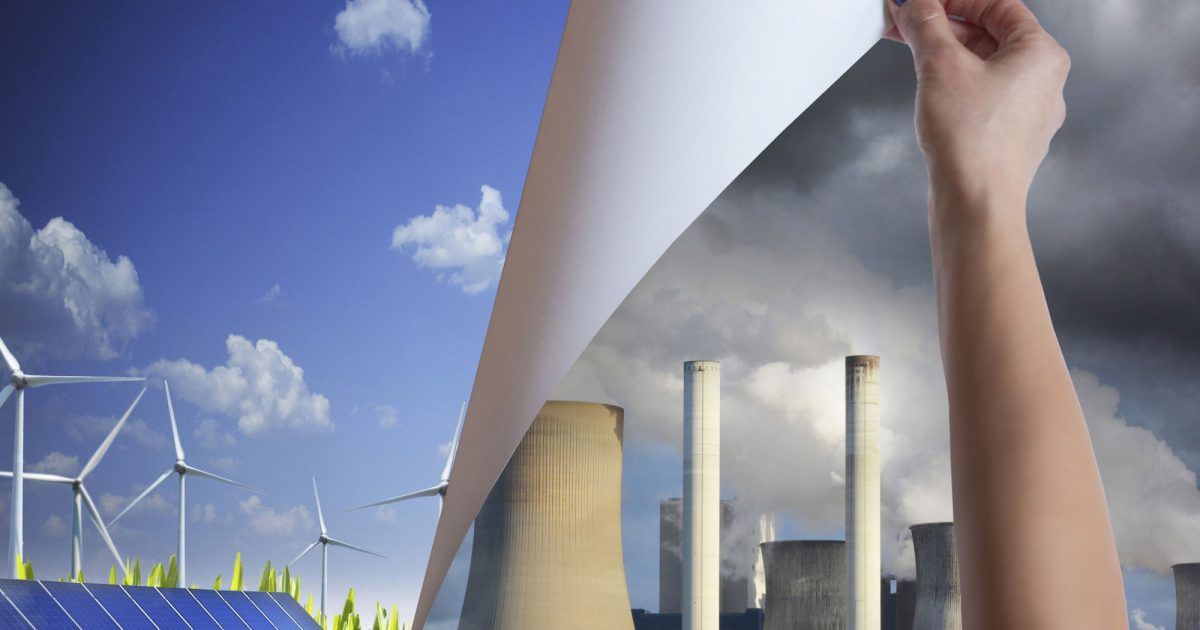Azerbaijan makes smooth shift to renewables from fossil fuels

Azerbaijan's economy has seen a significant change in the last several months, especially in the non-oil sector, where the renewable energy industry has led to a rise in exports. A noteworthy turning point was reached in November 2023, when the identities of five important non-oil industry exports from Azerbaijan were made public. With a significant increase from the same time in 2022—379.3 million US dollars—electric energy emerged as the top export.
Azerbaijan has always prioritised oil and gas production over advancements in the renewable energy industry. However, the nation has started to utilise its significant renewable energy resources as it recognises the need for diversification and environmental sustainability. Azerbaijan has adjusted its policies in favour of a renewable energy revolution due to its abundant offshore wind potential and heavy reliance on thermal generation powered by nearby natural gas deposits.
Besides, the country has made domestic progress towards decarbonisation and the use of renewable energy. The government's commitment to developing a sustainable and environmentally friendly energy industry is demonstrated by the creation of the State Agency for Renewable Energy Sources in 2020 and the passing of regulations like the Law on Using Renewable Energy Sources in Electricity Production.
Additionally, within a legal framework, Azerbaijan has taken steps to facilitate the switch to renewables from fossil fuels. In June 2022, the nation unveiled the Offshore Wind Roadmap in association with the World Bank and the International Finance Corporation (IFC). Plans to utilise offshore wind potential are outlined in the roadmap, which has attracted considerable participation from the Dutch diplomatic community. Furthermore, in 2021, Azerbaijan passed legislation, including the Law on Efficient Use of Energy Resources and the Law on Utilisation of Renewable Sources in Electricity Production, to lure international investment and streamline the implementation of renewable energy.
Furthermore, several studies are being conducted to assess the potential for producing power from renewable energy sources and to determine the actions and strategies that need to be put in place to maximise this potential. The process of using an auction to finance the purchase of well-chosen and highly prospective renewable energy sources is still ongoing. With the assistance of the European Bank for Reconstruction and Development (EBRD), the project Support for Holding Renewable Energy Auctions in Azerbaijan is now being implemented. The project will include the following: the set of guidelines for auctions, the regulations governing them, the electricity purchase and sale agreement, the qualification document, and the request for bids document.
To put those plans into practice Azerbaijan makes efforts to find partnerships on the global scene in regards to renewable energy. To promote the Green Energy Corridor throughout the region, Georgia, Azerbaijan, Romania, and Hungary inked an agreement on the development of a high-voltage underwater electrical line beneath the Black Sea. To tie the electrical networks of these nations and continental Europe together, this energy project will be the longest power line installed underwater in history. It will connect the South Caucasus region with south-eastern Europe.
Supportive laws and incentives show that the government is working to get the private sector to invest in renewable energy sources. Azerbaijan reaffirmed its commitment to the growth of renewable energy by signing several agreements, including partnerships with China and the United Arab Emirates (UAE). These agreements cover a wide range of projects, from offshore wind resource exploration to solar and wind power installations.
To develop 2 GW of renewable energy projects in Azerbaijan, the Ministry of Energy and the Chinese company “China Gezhouba Group Overseas Investment” signed a Memorandum of Understanding on June 1, 2023. The Memorandum of Understanding (MoU) calls for collaboration in evaluating the viability of investments in large-scale solar energy, wind energy, energy storage, integrated smart energy systems, and green hydrogen production projects in Azerbaijan. The document also outlines the company’s plans to conduct geological and topographical studies, an environmental impact assessment, and a network connectivity investigation of the project.
Moreover, between Azerbaijan and the UAE, the following agreements have been made: a Memorandum of Understanding on investment cooperation on electricity transmission projects between the Ministry of Investment of the United Arab Emirates and the Ministry of Energy of the Republic of Azerbaijan; a Framework Agreement on Strategic Collaboration in further strengthening Azerbaijan's capacities for renewable and clean energy and enabling Green Energy Export Operations; a Calendar of Actions (roadmap) for the construction of onshore solar and wind power plants with a capacity of 1 GW; and a Strategic Partnership Agreement between SOCAR and ADNOC.
The MoU calls for the development of a framework for collaboration on investments in the energy sector, particularly in projects involving the transmission of power, network expansion, and the sharing of technical expertise. In addition to 2 GW of solar and 2 GW of wind onshore projects and 6 GW of offshore wind energy, the strategic cooperation document covers cooperation and investment opportunities in new areas such as rooftop solar projects, green hydrogen, green ammonia, synthetic methane, sustainable aviation fuel production, and the export of green energy. The execution plans for the two solar and one wind energy projects scheduled for 2024–2027 are reflected in the Calendar of Actions (roadmap) for the building of 1 GW of solar and wind onshore projects to be installed in Azerbaijan.
Azerbaijan has established goals for renewable energy, hoping that by 2030, 30% of the nation's electricity-generating capacity will come from renewable sources through changes to its laws and international cooperation. With 135 GW of onshore and 157 GW of offshore renewable energy sources, the nation has substantial economic potential. With its combination of wind, solar, bioenergy, and mountain river resources, Azerbaijan is positioned to play a significant role in the world's renewable energy landscape. In addition to promoting environmental sustainability, the nation's emphasis on utilising its renewable energy resources creates new economic prospects and solidifies its place in the world energy market. With its successful alliances and ongoing implementation of its roadmap, Azerbaijan appears to have a bright future as it transitions to a more diverse and environmentally friendly energy portfolio.
---
Follow us on Twitter @AzerNewsAz
Here we are to serve you with news right now. It does not cost much, but worth your attention.
Choose to support open, independent, quality journalism and subscribe on a monthly basis.
By subscribing to our online newspaper, you can have full digital access to all news, analysis, and much more.
You can also follow AzerNEWS on Twitter @AzerNewsAz or Facebook @AzerNewsNewspaper
Thank you!

